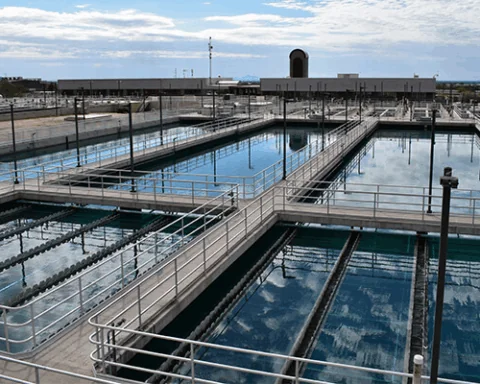U.S. Department of Energy (DOE) has released a roadmap for a new artificial intelligence initiative, marking a significant step in the government’s approach to effectively implementing the rapidly evolving technology. The Frontiers in Artificial Intelligence for Science, Security, and Technology (FASST) initiative seeks to develop AI capabilities for applications in scientific discovery, energy research and national security.
Interest in AI has surged in recent years. Technological advancements have led to systems that can process vast amounts of data, recognize patterns and generate human-like text or images. As private companies and other nations intensify their use of AI, the U.S. government is seeking to maintain its technological edge in this crucial field.
“FASST builds on DOE’s role as the nation’s steward of advanced supercomputing and research infrastructure across our 17 national labs to provide a national capability in AI and enable technological breakthroughs for decades to come,” Energy Secretary Jennifer Granholm said in a press release.
The roadmap outlines how FASST will leverage key DOE infrastructure and describes the assets it aims to deliver for national interests. It provides an organizing framework for establishing a national AI capability, detailing four main areas of focus:
- AI-Ready Data: The DOE plans to adapt its extensive scientific data sets for AI use. This involves organizing and labeling data so AI systems can effectively learn from it.
- Advanced Computing Infrastructure: The initiative will develop new, energy-efficient supercomputers specifically designed for AI tasks. These machines will be capable of processing vast amounts of data much faster than current systems.
- Trustworthy AI Models: FASST aims to create reliable AI systems that can assist in scientific research. These models will be designed with safeguards to ensure they operate safely and securely.
- AI Applications: The roadmap outlines plans to apply these AI capabilities to various scientific and energy-related challenges, from developing new materials to improving energy grid management.
The DOE’s roadmap emphasizes the potential of AI to accelerate scientific discoveries and enable new, affordable clean energy technologies. For instance, AI could help in discovering new battery materials or designing more efficient solar panels, according to the program website. In the realm of national security, the DOE highlights the potential for AI systems to assist in threat detection and strategic planning.
The roadmap also highlights early successes in AI applications at national laboratories. The Lawrence Livermore National Lab, for example, has begun clinical trials for a cancer drug designed with the help of AI and supercomputers. Pacific Northwest National Lab used AI to discover a new battery material.
Partnerships are incorporated into DOE’s vision for utilizing AI. The FASST initiative, as outlined in the roadmap, will build on the DOE’s history of public-private partnerships in collaboration with academic institutions and industry partners to drive innovation in AI development and application.
The release of this roadmap comes at a time when governments worldwide are grappling with how to harness AI’s potential while mitigating its risks. While the roadmap presents an ambitious vision, it also acknowledges the challenge of developing safe and trustworthy AI systems at this scale. The DOE announcement comes months after the White House released an AI policy mandating that federal agencies take stock of AI technology currently in use, and develop best practices to ensure such applications are ethical and responsible.
In the past months, a handful of federal and state agencies have made announcements on how they will utilize artificial intelligence. The DOE has already publicly described its efforts to use AI for speeding up the clean energy transition. Several states including California and Tennessee are using AI to help improve transportation systems. And a partnership with water authorities, the private sector and a university has been designing AI systems that protect water infrastructure from cyber attacks.
“Artificial intelligence is an innovative technology that can help unleash breakthroughs in energy technologies and enhance our national security,” Granholm said.












